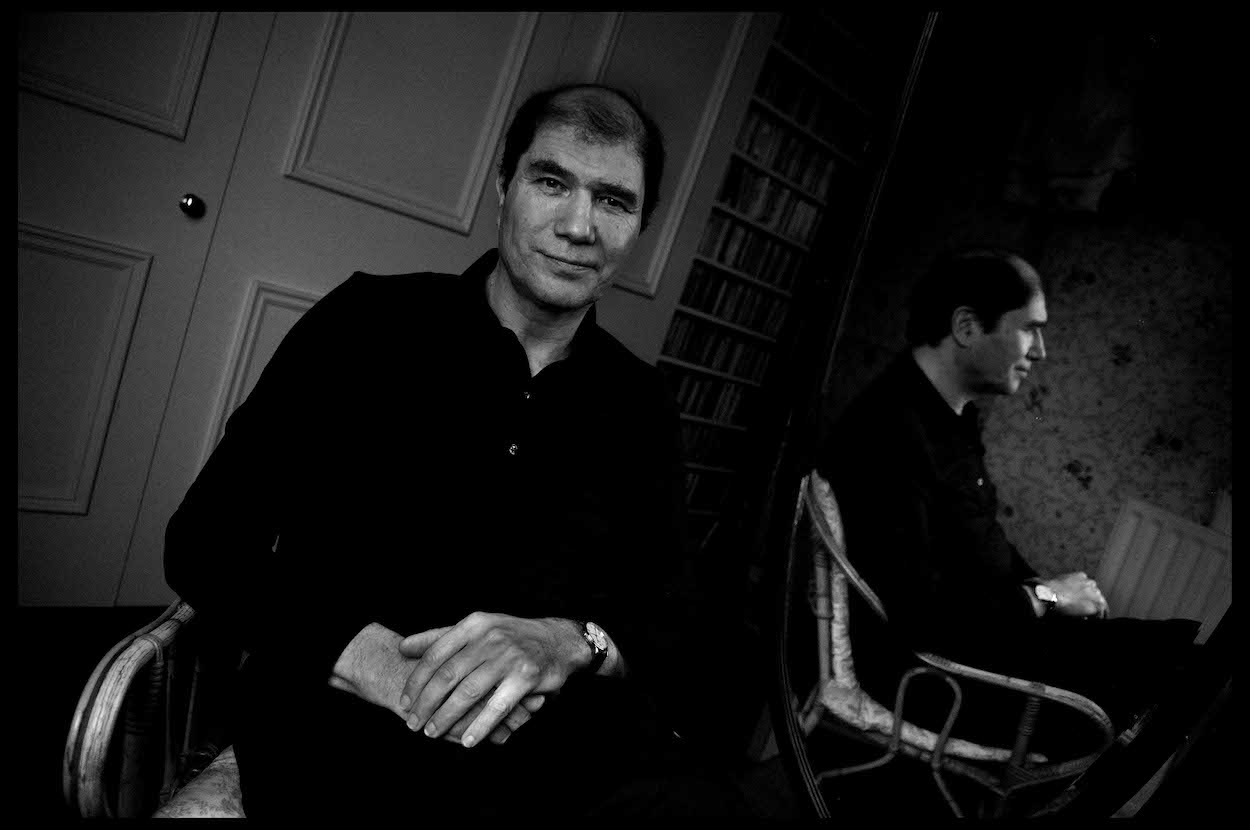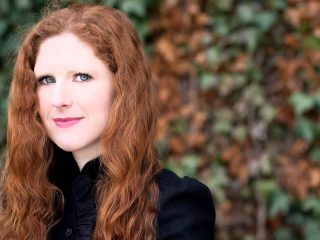
Michael Berkeley
This month we feature the composer, Michael Berkeley. Having contributed a Concerto, Oboe Quintet and five other significant works for Oboe and Cor Anglais to the repertoire, the music of Michael Berkeley stands as some of the most significant in recent decades. Below are a series of programme notes on his works for Oboe and Cor Anglais. Those of you listening to these works will notice a recurring motif return in both Fierce Tears pieces, Into the Ravine and his Oboe Concerto. You may also be interested to try other works such as his Wind Quintet, Catch Me If You Can.
Into the Ravine
Instrumentation: Oboe and String Quartet
Duration: 18′
First Performance: Premiered by Nicholas Daniel and the Carducci Quartet (2012)
While writing this quintet Berkeley had in mind the paintings of John Craxton and Mark Rothko, and the way in which paint can vibrate as colours collide. The piece opens with the oboe intoning three notes around which all the music oscillates. At pivotal moments in the music this lachrymose motif imposes itself though in varied permutations. In the final bars the oboe has a seagull-like cry until, as though a switch is pulled, its life force is suddenly cut off.
© OUP


Fierce Tears I & II
Instrumentation: Oboe and Piano
Duration: 7′ & 9′
Michael Berkeley has had a long and productive relationship with the oboe thanks to two great players, Janet Craxton and Nicholas Daniel. Fierce Tears I & II for oboe and piano, both premièred by Daniel, stand out as highly significant works in his output and the emotionally powerful Oboe Concerto, which he wrote for the English oboist Janet Craxton in 1977, is particularly important as a reference point for these later pieces. Berkeley wrote the third and final movement of the Oboe Concerto in memory of his godfather, Benjamin Britten. In it the there is a haunting and lyrical melody (inspired by the line “Let us sleep now” in the Britten War Requiem) which plays an important role in both Fierce Tears I & II. Despite being published together, the chamber pieces were written several years apart. The first was completed in 1983 in memory of Craxton, who had died very suddenly two years earlier. The piece paraphrases in music the final stanza of the famous poem by Dylan Thomas “Do Not Go Gentle into That Good Night”. This reflects the feeling of despair and, at times, anger often experienced while grieving. In fact this aspect of loss has inspired a whole series of Berkeley works like the Operas, Baa Baa Black Sheep and Jane Eyre and the pieces for String Orchestra, Coronach and Gethsemane Fragment. Given the emotional resonance of both Fierce Tears I and his Oboe Concerto, it is perhaps not surprising that Michael Berkeley returned to the oboe to write Fierce Tears II in 1990, to a commission from the Aldeburgh Festival in memory of his father, the composer Sir Lennox Berkeley. Although both these works are profoundly emotional, they express very different kinds of grief: one could suggest that the gap of seven years between the two pieces shows how differently Michael Berkeley responded to the loss of friends and family at various stages in his life.


Oboe Concerto
Instrumentation: Oboe and String Orchestra
Duration: 27′
Michael Berkeley’s Oboe Concerto was commissioned by the Burnham Market Festival in Norfolk with funds provided by the Arts Council of Great Britain. It was first performed in 1977 by Janet Craxton with the Snape Maltings Training Orchestra conducted by Michael Lankester.
The work begins quietly, the oboe entering without orchestral preamble. The five-note theme introduced by the soloist permeates the entire movement as the music becomes steadily more animated and interplay between soloist and orchestra more intense. The movement culminates in a solo cadenza and rhapsodic coda where glimpses of the previous music are caught fleetingly before the oboe rises to a hushed conclusion.
The central movement is a playful scherzo. After a vigorous introduction based around the interval of a third, the oboe takes up the theme, fashioning ever more expansive melodies from the germ of the opening. There follows a more relaxed and lyrical middle section, though this is quickly swallowed up by the return of the music of the start of the movement.
The final movement, Elegy, is dedicated to the memory of the composer’s godfather, Benjamin Britten. It is based on an augmented fourth – the interval central to Britten’s War Requiem. Over these stark chords the oboe traces a melancholy line that gradually becomes infused with warmth. After a central climax a fugato section leads back to the opening subject – but now with three soloists (oboe, violin, and viola) weaving between the shifting fourths.
The concerto ends with the oboe intoning the notes Britten used to depict Wilfred Owen’s line, ‘let us sleep now’, whereupon the music gradually comes to rest.

Snake
Instrumentation: Solo Cor Anglais
Duration: 5′
Written for solo Cor Anglais, this piece was inspired by the poem by DH Lawrence.

Three Moods
Instrumentation: Solo Oboe
Duration: 9′
Michael Berkeley’s Three Moods was written for Janet Craxton and first performed by her in 1978 in Knighton on the Welsh Borders. The first of these pieces starts in thoughtful, meditative style but builds to a fairly virtuosic mid-section built on rapid inflected scales. The short, lyrical second piece brings a hint of English folksong to its melodic writing. The third piece lives up to its Giocoso marking, being a capering, scherzo-like invention making plenty of use of lively rhythms and clutches of repeated notes, though there is a brief look back to the more soulful mood of the first piece before the teasing ending.
© Malcolm MacDonald

Second Still Life
Instrumentation: Oboe and Harp
Duration: 6′
In Second Still Life the play on the word second is, in fact, very apt. Not only is it scored for just two instruments but the interval of a second is explored throughout the piece, creating thematic and harmonic material from the most basic of motifs.The unusual scoring is an interesting feature of this work, using the particularly beautiful timbres of the harp and oboe to create a short, yet memorable study.
© Oxford University Press


About Michael Berkeley
Michael Berkeley was born in 1948, the eldest son of the composer Sir Lennox Berkeley and a godson of Benjamin Britten. As a chorister at Westminster Cathedral, singing naturally played an important part in his early education.
He studied composition, singing and piano at the Royal Academy of Music but it was not until his late twenties, when he went to study with Richard Rodney Bennett, that Berkeley began to concentrate exclusively on composing. In 1977 he was awarded the Guinness Prize for Composition; two years later he was appointed Associate Composer to the Scottish Chamber Orchestra. Since then Michael’s music has been played all over the globe and by some of the world’s finest musicians.
Major works of the 1980s include Gregorian Variations conducted in England and America by Andre Previn; the 1982 oratorio Or Shall We Die? to a text specially written by Ian McEwan, and made into a remarkable film for Channel 4 by Richard Eyre; For the Savage Messiah, Songs of Awakening Love, composed for Heather Harper and performed at the 1988 Proms; the Concerto for Organ; Keening for the saxophonist John Harle; Fierce Tears I and Fierce Tears II for the oboist Nicholas Daniel; the Quartet Study and the two pieces for strings, Coronach and Gethsemane Fragment.
Michael has written incidental music for radio and three film scores: Captive (1986), starring Oliver Reed and Irina Brook, directed by Paul Mayersberg for which Michael collaborated with The Edge of U2; Goldeneye (1991) – a dramatised life of Ian Fleming starring Charles Dance and directed by Don Boyd and another Don Boyd film, Twenty One (1991) starring Patsy Kensit and Rufus Sewell.
As part of Berkeley’s tenure as Composer in Association to the BBC National Orchestra of Wales he was commissioned to write three new works, and the second, the Concerto for Orchestra, was premièred at the 2005 Proms. This piece, as with most of Michael’s significant orchestral work, much of his chamber music and his operas, is available on CD as part of the Chandos Berkeley Edition. His final commission for the National Orchestra of Wales was for chorus and orchestra, a haunting lament written in memory of a young family friend, Gabriel Bailey, and Berkeley’s long-time friend and collaborator, Richard Hickox. Gabriel’s Lament memorably includes the singing of hump-back whales.
From 1995 to 2005 Michael was artistic director of the Cheltenham International Festival of Music, where he premiered over a hundred new works and initiated a policy of having a contemporary work in every programme. The scene was set by the world premiere of Thomas Ades’s Powder her Face and a chamber series featuring the work of Gyorg Kurtag. With Judith Weir and Anthony Payne, Berkeley jointly directed the Spitalfields Festival and he built the music programme for the Sydney Festival in Australia for three years at the beginning of the millenium.
In 2012, Michael composed his Oboe Quintet, Into the Ravine for Nicholas Daniel and the Carducci String Quartet. Also that year, he wrote Three Rilke Sonnets for Claire Booth and the Nash Ensemble, at the Wigmore Hall.
Michael was appointed a CBE for services to music in the Queen’s Birthday Honours published on June 16 2012. In 2013 Michael was appointed a non-party political member of the House of Lords as Lord Berkeley of Knighton, CBE. He speaks as a passionate advocate for the arts, contemporary music and music education as well as taking up specific causes like FGM.




